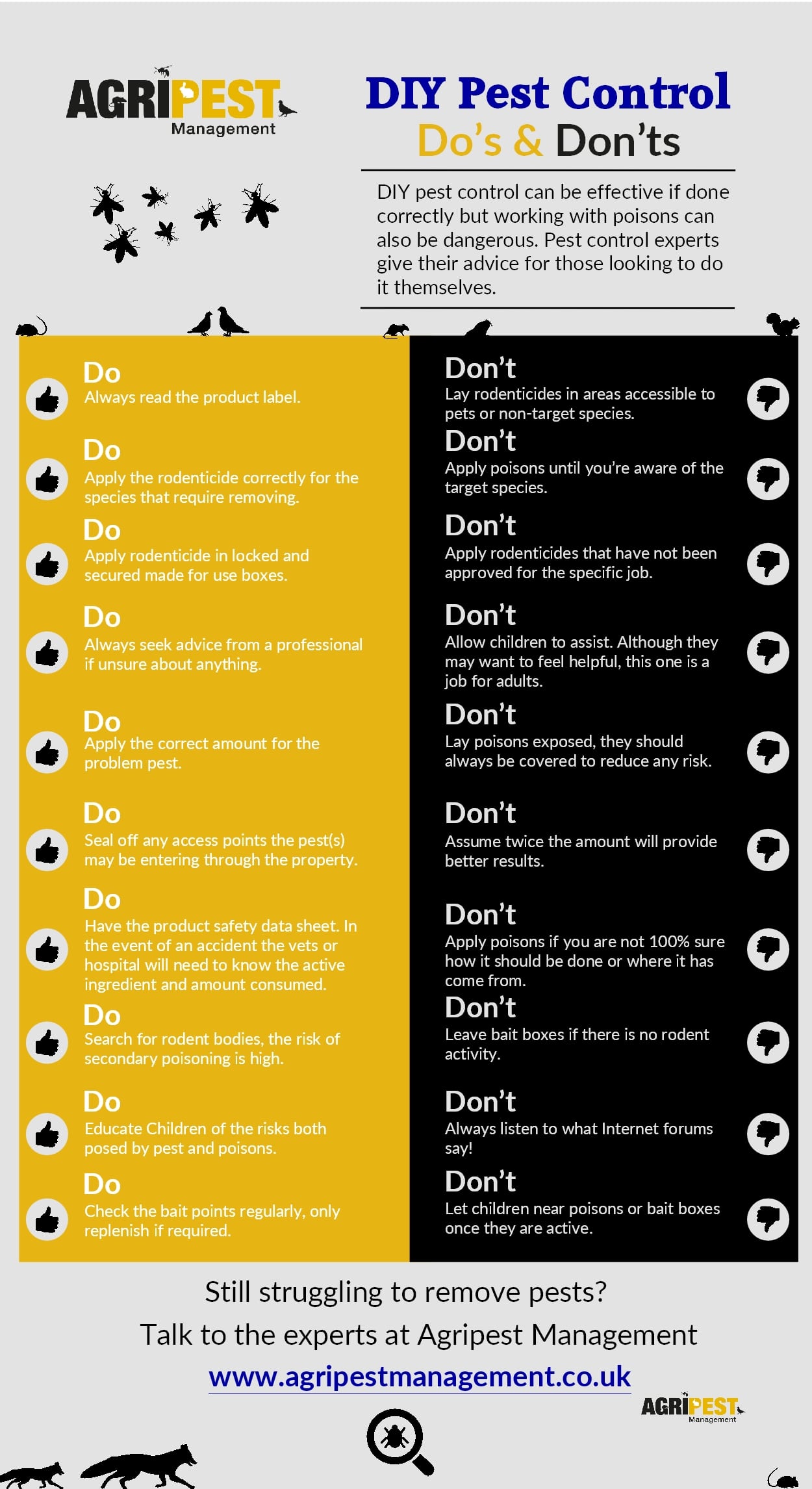Insights From Specialists On Rodent Habits For Successful Parasite Control
Insights From Specialists On Rodent Habits For Successful Parasite Control
Blog Article
Staff Author-Berg Skovsgaard
Picture being able to expect the steps of your opponents in a video game of chess, constantly staying one step ahead.
On the planet of pest control, recognizing rodent behavior resembles having that calculated benefit. By acquiring professional insights into the nesting routines, feeding patterns, and interaction and social habits of rodents, you can properly deal with these pesky animals.
But exactly how specifically do rodents act, and why is it essential to know? In this conversation, we will unravel the enigmas of rodent behavior, giving you with beneficial knowledge that will certainly assist you stay in advance in the fight versus bugs.
Are you prepared to discover the secrets of these shrewd creatures?
Nesting Behaviors
To understand rodent actions and properly control insects, it's important to get understanding into their nesting behaviors.
Rodents, such as computer mice and rats, have an all-natural reaction to find sanctuary and produce nests where they feel risk-free and secure. These nests act as their homes, reproducing grounds, and storage space locations for food. Understanding their nesting practices can aid you recognize potential locations of infestation and execute targeted control measures.
Rodents commonly prefer nesting in dark, private areas, such as attics, cellars, crawl spaces, and wall voids. They make use of materials like shredded paper, fabric, insulation, and also chewed-up electrical wires to construct their nests.
Feeding Patterns
Rats exhibit distinctive feeding patterns that play a crucial function in their behavior and can educate efficient insect control approaches. Comprehending try this is important for applying effective pest control procedures.
Rodents are opportunistic feeders, indicating they'll take in whatever food is easily offered. They like high-calorie foods such as grains, nuts, and seeds. This is why correct storage space of food and waste administration are essential in preventing rodent invasions.
In addition, rats are nighttime, which indicates they're most active throughout the evening when they search for food. By knowing their feeding patterns, you can purposefully put traps and lures to optimize their effectiveness.
Keeping food resources hard to reach and maintaining a tidy environment can assist prevent rats and lessen the threat of invasion.
Interaction and Social Actions
Recognizing exactly how rats interact and interact socially is crucial for efficient parasite control methods. Rodents, like computer mice and rats, have complicated communication systems that they use to share information per various other and collaborate their activities. Below are 3 vital facets of rodent interaction and social habits:
1. Articulations: Rats generate a variety of vocal noises, consisting of squeaks, chirps, and chattering, to connect with each other. These vocalizations can communicate numerous messages, such as risk warnings or mating phone calls.
2. Scent marking: Rodents make use of scent glands to leave chemical signals on things and in their environment. go here act as territorial borders and interact info concerning reproductive standing, prominence, and social association.
3. Social hierarchy: Rodents have an ordered social structure, with dominant people having accessibility to resources and chosen nesting websites. Understanding this hierarchy is important for targeting parasite control efforts and recognizing essential people for removal.
Final thought
So, there you have it - a quick glance into the fascinating world of rodent behavior. By understanding their nesting behaviors, feeding patterns, and interaction, we can better tackle the concern of pest control.
Did https://messiahlhavo.bloginder.com/26356745/indicators-showing-the-demand-for-professional-pest-control-services understand that a female mouse can produce approximately 10 litters per year, with each clutter including around 5-6 dogs? This unbelievable statistic highlights the relevance of punctual and effective bug administration to avoid rodent populaces from spiraling unmanageable.
